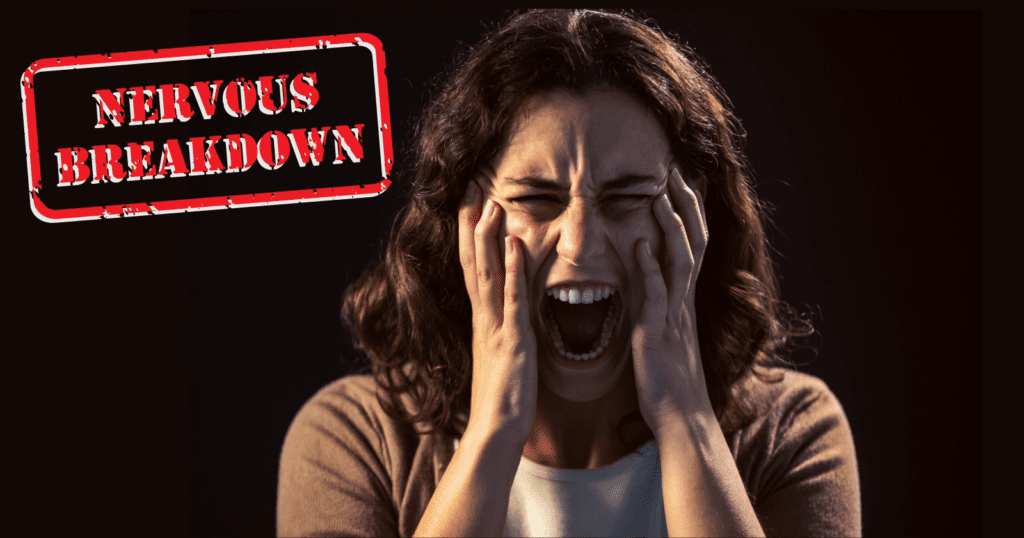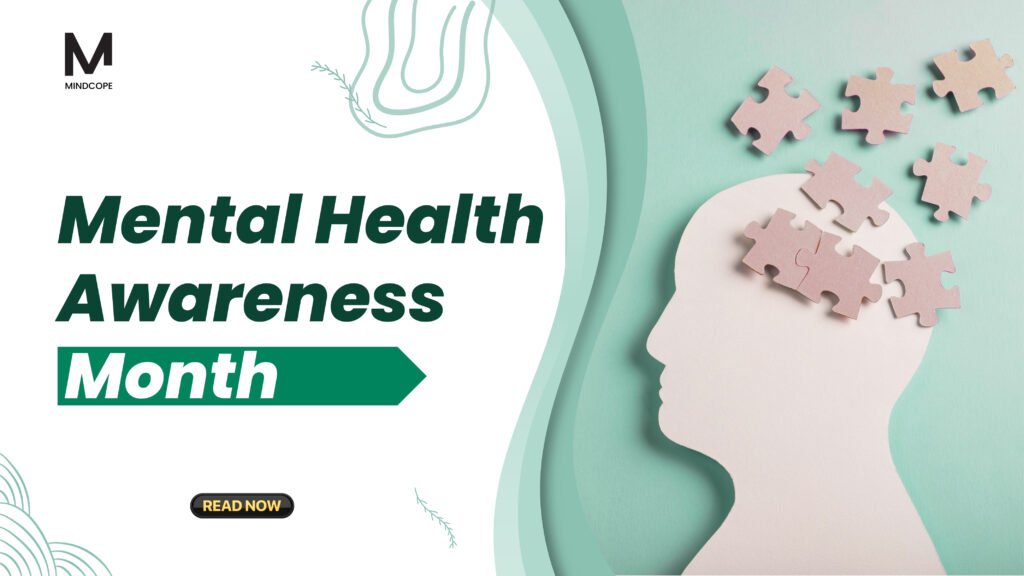Have you ever felt so overwhelmed by stress that you couldn’t cope with daily life? A nervous breakdown, also known as a mental breakdown, is a term used to describe this intense period of mental distress. It represents a state of extreme emotional and physical exhaustion, leaving individuals feeling anxious, depressed, and hopeless.
According to the NHS, symptoms of a Breakdown can include anxiety, agitation, mood swings, and sleep disturbances, as well as physical symptoms like headaches and chest pain. While a nervous breakdown is not a formal medical diagnosis, it often signals underlying mental health conditions. If you or someone you know is experiencing these symptoms, seeking professional help is crucial. Mental health professionals can offer support, advice, and treatment options to manage symptoms and improve well-being.
Table of Contents
Identifying Symptoms of a Breakdown

A breakdown, also known as a mental breakdown or nervous breakdown, is a period of intense emotional or mental distress that can interfere with a person’s ability to function normally. Identifying the symptoms of a breakdown can be challenging, as they can vary from person to person. However, there are some common early warning signs that can help people recognize the onset of a breakdown and take steps to seek help.
Early Warning Signs
The early warning signs of a breakdown can be subtle and easy to overlook. They may include changes in behaviour or mood, such as increased irritability, anxiety, or depression. Other early warning signs may include difficulty sleeping or eating, feeling overwhelmed, or isolating oneself from friends and family.
NHS Perspective on Symptoms
According to the NHS, the symptoms of a breakdown can include feeling unable to cope with daily life, feeling disconnected from reality, and experiencing intense feelings of anxiety or panic. Other symptoms may include feeling emotionally numb, having difficulty concentrating, or withdrawing from social situations.
Recognising a Nervous Breakdown
A nervous breakdown is a term used to describe a period of extreme mental or emotional stress. The signs of having a nervous breakdown can include feeling overwhelmed, unable to cope, or having difficulty functioning in daily life. Other signs may include feeling disconnected from reality, experiencing intense feelings of anxiety or panic, or having difficulty sleeping or eating.
It is important to note that a nervous breakdown is not a medical diagnosis, but rather a term used to describe a state of extreme emotional or mental distress. If you or someone you know is experiencing symptoms of a breakdown, it is important to seek professional help as soon as possible.
In conclusion, identifying the symptoms of a breakdown can be challenging, but early recognition and intervention can help prevent the situation from escalating. It is important to seek professional help if you or someone you know is experiencing symptoms of a breakdown.
Types and Stages of Mental Breakdowns
Mental breakdowns, also known as nervous breakdowns, are not a specific mental health diagnosis but rather a term used to describe a period of intense emotional or psychological stress. Mental breakdowns can occur due to a variety of factors, including trauma, life events, or mental illness. In this section, we will explore the varieties of breakdowns and the progression of symptoms.
Varieties of Breakdowns
There are several types of mental breakdowns that an individual may experience. Each type of breakdown can have different symptoms and causes. Here are some common types of mental breakdowns:
- Anxiety-related breakdowns: Anxiety-related breakdowns are characterized by intense feelings of fear, worry, and panic. Symptoms may include shortness of breath, rapid heartbeat, and sweating.
- Depression-related breakdowns: Depression-related breakdowns are characterized by feelings of sadness, hopelessness, and worthlessness. Symptoms may include loss of interest in activities, changes in appetite, and difficulty sleeping.
- Psychotic breakdowns: Psychotic breakdowns are characterized by a loss of touch with reality. Symptoms may include hallucinations, delusions, and disorganized thinking.
- Bipolar-related breakdowns: Bipolar-related breakdowns are characterized by extreme mood swings, ranging from manic episodes to depressive episodes. Symptoms may include impulsivity, irritability, and changes in sleep patterns.
Progression of Symptoms
The progression of symptoms during a mental breakdown can be different for each individual. However, there are some common stages that many people may experience. Here are the stages of a mental breakdown:
- Triggering event: A triggering event, such as a traumatic experience or a major life change, can cause a mental breakdown.
- Emotional overload: During this stage, an individual may experience intense emotions, such as fear, sadness, or anger. They may also feel overwhelmed and unable to cope with their emotions.
- Physical symptoms: Physical symptoms, such as headaches, fatigue, and muscle tension, may develop during this stage.
- Crisis: During the crisis stage, an individual may experience a loss of control over their emotions and behaviour. They may feel like they are having a mental breakdown.
- Recovery: With treatment and support, an individual can recover from a mental breakdown. The recovery stage may involve therapy, medication, and lifestyle changes.
It is important to seek help if you or someone you know is experiencing symptoms of a mental breakdown. With proper treatment and support, individuals can recover and manage their mental health.
Diagnostic Tools and Scans
When it comes to diagnosing mental illness, healthcare professionals may use a variety of tools and scans. These can help to identify the underlying causes of a person’s symptoms, and to determine the most appropriate course of treatment.
Brain Scans for Mental Illness
Brain scans are one tool that can be used to diagnose mental illness. These scans can provide detailed images of the brain, which can help healthcare professionals to identify any abnormalities or irregularities that may be contributing to a person’s symptoms.
One type of brain scan that may be used in the diagnosis of mental illness is the magnetic resonance imaging (MRI) scan. This type of scan uses a strong magnetic field and radio waves to create detailed images of the brain. It can be used to identify structural abnormalities, such as tumours or lesions, as well as changes in brain chemistry that may be contributing to a person’s symptoms.
Another type of brain scan that may be used in the diagnosis of mental illness is the positron emission tomography (PET) scan. This type of scan uses a small amount of radioactive material to produce images of the brain. It can be used to identify changes in brain activity that may be associated with mental illness.
While brain scans can be a useful tool in the diagnosis of mental illness, they are not always necessary. Healthcare professionals will typically use a range of other diagnostic tools and assessments, such as interviews, questionnaires, and physical examinations, to determine a person’s diagnosis and to develop an appropriate treatment plan.
Understanding Mental Illness

Mental illness is a broad term that refers to a range of mental health conditions that affect an individual’s thinking, mood, and behavior. It is a complex and often misunderstood subject that has been the subject of much study and research.
Mental Health and Mortality
Mental illness can have a significant impact on an individual’s physical health and wellbeing. According to the World Health Organization, mental illness is the leading cause of disability globally, and it is estimated that people with severe mental illness die up to 20 years earlier than the general population [1].
In fact, some mental illnesses have the highest mortality rates of any medical condition. For example, individuals with anorexia nervosa have a mortality rate of up to 10%, which is higher than that of many types of cancer [2].
Cultural Interpretations
Cultural interpretations of mental illness vary widely, and can have a significant impact on how mental illness is perceived and treated. In some cultures, mental illness is seen as a sign of weakness or personal failure, and individuals with mental illness may be stigmatized or ostracized [3].
In other cultures, mental illness is seen as a spiritual or supernatural phenomenon, and traditional healers or religious leaders may be consulted for treatment [4].
Unusual Behaviours
Some mental illnesses can cause unusual behaviors that may be difficult for others to understand or accept. For example, individuals with obsessive-compulsive disorder may engage in repetitive or ritualistic behaviors, such as washing their hands multiple times a day [5].
Similarly, individuals with schizophrenia may experience hallucinations or delusions that can cause them to behave in ways that others find strange or frightening [6].
In conclusion, mental illness is a complex and multifaceted subject that can have a significant impact on an individual’s physical and emotional wellbeing. It is important to recognize the signs and symptoms of mental illness, and to seek appropriate treatment and support.
References:
[1] World Health Organization. (2018). Mental disorders. Retrieved from https://www.who.int/news-room/fact-sheets/detail/mental-disorders
[2] Arcelus, J., Mitchell, A. J., Wales, J., & Nielsen, S. (2011). Mortality rates in patients with anorexia nervosa and other eating disorders: a meta-analysis of 36 studies. Archives of General Psychiatry, 68(7), 724-731.
[3] Sartorius, N., Schulze, H., & Reddy, S. (2005). Cultural issues in the stigma of mental illness. In W. Gaebel, W. Rössler, & N. Sartorius (Eds.), The stigma of mental illness – end of the story? (pp. 269-287). Springer.
[4] Patel, V., & Prince, M. (2010). Global mental health: a new global health field comes of age. JAMA, 303(19), 1976-1977.
[5] American Psychiatric Association. (2013). Diagnostic and statistical manual of mental disorders (5th ed.). American Psychiatric Publishing.
[6] National Institute of Mental Health. (2016). Schizophrenia. Retrieved from https://www.nimh.nih.gov/
Frequently Asked Questions
What are the symptoms of a nervous breakdown?
The symptoms of a nervous breakdown vary from person to person, but some common signs include overwhelming anxiety, paranoia, or thoughts of self-harm. People may also experience feelings of intense sadness, worry, anxiety, fear, or nervousness. Other emotional symptoms may include a feeling of being on edge, an extreme sense of doom, low energy and fatigue, feelings of guilt, worthlessness, powerlessness, or shame. Physical symptoms may include stomachache, trouble concentrating, and lack of interest in activities.
How can you distinguish between a psychotic break and a nervous breakdown?
A nervous breakdown is not a clinical term, and it is not officially recognised as a mental health diagnosis. A psychotic break, on the other hand, is a medical emergency that requires immediate attention. People experiencing a psychotic break may have symptoms such as delusions, hallucinations, disordered thinking, and bizarre behaviour. It is important to seek medical attention if you or someone you know is experiencing these symptoms.
What should you do if someone appears to be experiencing a mental breakdown?
If someone appears to be experiencing a mental breakdown, it is important to approach them with care and compassion. Encourage them to seek professional help from a mental health provider. You can also offer to help them find resources and support in their community. It is important to avoid judgment and stigma, and to create a safe and supportive environment for the person.
What are the physical symptoms associated with a nervous breakdown?
Physical symptoms associated with a nervous breakdown may include headaches, chest pain, rapid heartbeat, shortness of breath, and gastrointestinal problems. These symptoms can be caused by the body’s response to stress and anxiety, and they can be very distressing. It is important to seek medical attention if you are experiencing these symptoms.
How long is a nervous breakdown expected to last?
There is no set timeline for a nervous breakdown, as recovery time can vary depending on the individual and the severity of their symptoms. Recovery may take weeks, months, or even longer. It is important to seek professional help and follow a treatment plan to aid in the recovery process.
What steps can one take to recover from a breakdown?
Recovering from a nervous breakdown may involve a combination of medication, therapy, and lifestyle changes. It is important to seek professional help from a mental health provider and to follow a treatment plan. Other steps that can aid in recovery include getting enough sleep, eating a healthy diet, exercising regularly, and reducing stress. It is also important to create a support network of family and friends who can offer emotional support and encouragement.





